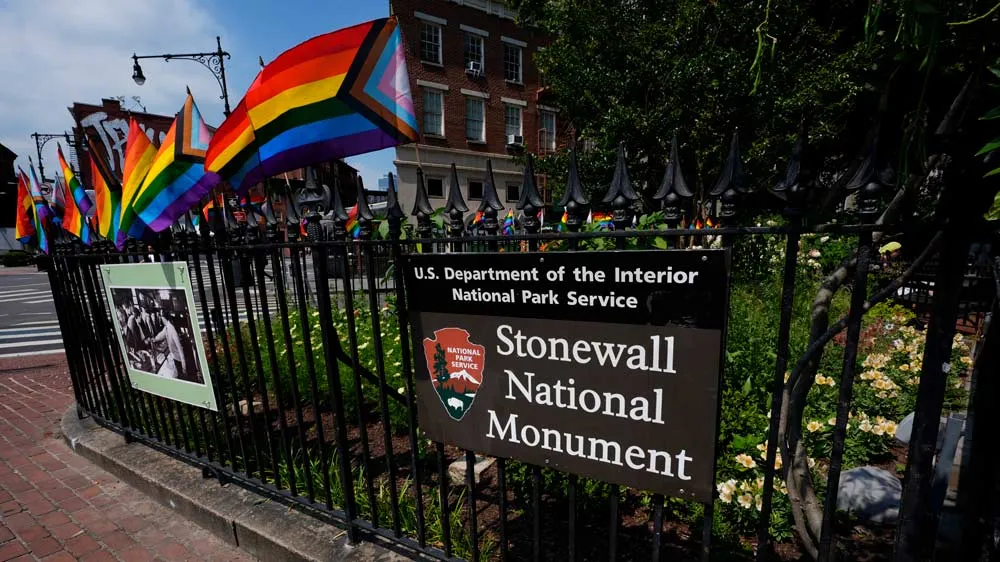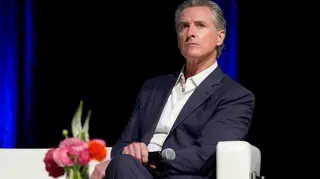April 9, 2016
One Gay Muslim Shares His Story of Coming Out
Christiana Lilly READ TIME: 4 MIN.
It was the theater that drove him away from religion, and it was the theater that brought him back.
Ramy Eletreby, a writer and performer living in Los Angeles, struggled for years with being Muslim and a gay man after being outed in a newspaper article.
Aspiring to be an actor, Eletreby accepted the role of a gay Muslim man in the play "A Long Bridge Over Deep Waters." Even before opening night, it was considered controversial by the Muslim community because of his character. In fact, two actors left the production after struggling to reconcile their faith with the character in the play, and a third actor left for allegedly similar reasons, according to the Los Angeles Times.
With all the brouhaha, the newspaper wrote an article in June 2005 and interviewed Eletreby about it -- including that he really is gay.
"It turned into an entire call for the Muslim community to boycott this play because we're perpetuating things that they didn't support," he told the Mirror. "[The LA Times] asked why I was willing to play the character and basically I outed myself."
This was news to his family and his community -- while he doesn't regret coming out, he does admit he should have had a sit down with his family first to let them know ahead of time. Eletreby said people were shocked, but rather than be angry at him, people refused to believe it could be true.
"It was a lot of not really wanting to believe in its truth or validity because you can't be gay. There's this belief that God does not create people that way and you choose to be this way. We know that you are not gay, but yet you seem to believe that you are gay," he explained.
"A lot of people thought I was confused or influenced or I was in need of some psychological help," he said. "I didn't like the narrative around what was happening, that I was being treated like I was a mental case."
Advocacy for LGBT people is relatively new within the Muslim world. In 1997, the Al-Fatiha Foundation was founded as an advocacy group by Faisal Alam, an out Pakistani-American, when he was just 19. In 2001, the terrorist group Al-Muhajiroun in the United Kingdom allegedly put out a fatwa, calling the group apostates and claiming the homosexual acts are punishable by death, according to the Washington Blade.
"The very existence of Al-Fatiha is illegitimate and the members of this organization are apostates. Never will such an organization be tolerated in Islam and never will the disease which it calls for be affiliated with a true Islamic society or individual. The Islamic ruling for such acts is death."
The group carried on, but unfortunately when Alam stepped down in 2005, the group was unable to keep going. One of the largest groups representing LGBT Muslims today, the Muslim Alliance for Sexual and Gender Diversity, founded in 2013, hosts an annual retreat, the Retreat for LGBTQ Muslims and Partners.
After the LA Times article, Eletreby isolated himself from others -- or "run away" as he described it -- as he tried to come to terms with being both gay and a practicing Muslim. He stopped communicating with other Muslims, didn't go to mosque, and basically stopped practicing the religion that had been a part of his life for so long. He says he wasn't cut out, but he cut himself out in an act of "self preservation."
Instead, Eletreby went to the other end of the spectrum and considered himself to be an atheist and displayed anger towards all organized religion. He believes this was a part of the grieving process of losing Islam.
"I eventually started missing some of the spirituality that had been a huge part of my life growing up. I missed fasting during Ramadan and I missed the feeling of community," he said. "It was a part of my identity, so to also deny that for many years was tough."
It was the stage that helped him get it back.
While in graduate school in New York City, he went to a play with a friend in the East Village where two LGBT Muslim women were a part of the play. They talked about living their life and spirituality, moving Eletreby to tears.
"I was forever changed," he said. "It was beautiful to see people come to a place of reconciliation because in my life, it was a separation. It was very comforting. It was like, I can't believe I never imagined this for myself. It could have been mine this whole time. I found the warm blanket that I was looking for."
While in New York, he was also exposed to a community of out Muslim people, something he didn't have in Los Angeles. It was a growing process that helped him see that he could successfully be a gay man and a Muslim at the same time.
Today, Eletreby is back living in Los Angeles and is not a part of a religious community, but has created his own way of worship. He tries to read the Quran every night before bed and believes that his own personal relationship with God is what matters, rather than relying on sermons from imams. Also, he has reestablished a good relationship with his family.
"I'm not seeking any justification or validation from religious leaders, and it's liberating," he said. "The only validation I need is between me and God, and I'm working really hard to establish that and make sure that connection is strong."
What would he tell other young Muslims who might be feeling confused?
"Patience is one of the things that is most stressed in the Koran, too, in our faith. To be able to live life with patience, you can't always get what you want, you can't always have it now, as long as you are steadfast and true that you are on the right path, you'd be surprised as to what comes along."

 Copyright South Florida Gay News. For more articles, visit
Copyright South Florida Gay News. For more articles, visit 





